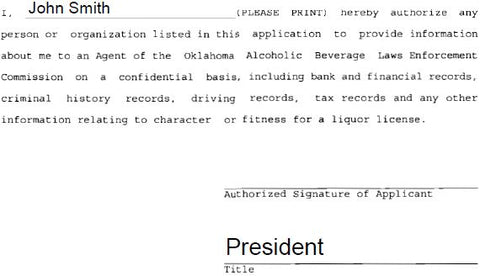

One of the terms and conditions for this license is that the hotel must be located in commercial space with ample parking.Ĭlubs which come under the registrar of cooperative societies/ registrar of firms are given this license to provide foreign liquor to their members. Star hotels having approval from Department of Tourism to provide accommodation to tourists have to obtain this license to serve liquor. Terms and conditions for this license have to be adhered by the hotel management. Terms and conditions laid down under this license are different for hotels, clubs, restaurants, residents and other premise. In order to serve liquor in functions, parties and conferences P-10 and P-13 license is required. Nevertheless, the terms and conditions approved for an L-9 license are not relevant to L-10 licenses. In order to carry out retail sales of different foreign and Indian liquor brands, L-10 license is given. The applicant has to follow terms and conditions laid down by concerned authorities in order to get this license. This license is given selected undertakings coming under Delhi government such as DSIDC, DTTDC, DSCSC and DCCWS.ĭifferent brands of foreign and Indian liquor can be sold in retail by obtaining L-9 license which was earlier called L-52 D. Along with this terms and conditions laid by authorities have to be followed by a firm owning L-1 license for liquor.įirms which want to retail beer/foreign liquor apply for L-6 license. This license has to be obtained by proprietorship firms, societies, companies or firm for wholesale sales provided they meet condition that is such firm should own brewery/distillery/bottling plant/manufacturing unit. There are multiple licenses issued in this domain and provisions for granting of licenses are mentioned below: Wholesale licensee for Indian Made Foreign Liquor.Mentioned below are some brands of liquor which need special licenses for trading: License category is different for different varieties of liquor. Categories of Liquor LicenseĬategories of liquor licenses required by bar owners and liquor retailers are mentioned in the Delhi Liquor License Rules, 1976. 5 states in India have implemented ban on consumption, purchase and sale of liquor. Indian Law on LiquorĪrticle 47 in the Indian Constitution talks about the liquor law and it states that Indian states shall work towards prohibiting liquor consumption other than liquor being used for medicines and drugs which can be harmful for health. Imported Foreign Liquor (IFL)-This category is manufactured outside India and is imported to India and this is the reason they are priced above IMFL in the market.

Indian Made Foreign Liquor (IMFL) -This category is manufactured in India and it refers to hard liquor. In Indian market there are two categories of liquor available. As per Delhi Liquor License Rules, 1976 and section 23 of the Delhi Excise Act 2010, permissible age for consuming alcohol is 25. In Delhi liquor sale and consumption comes under the purview of the excise department.Įach state specifies a legal age or consumption age for alcohol consumption. The reason behind this is the 7 th schedule of the Indian Constitution which has placed alcohol under the state list. There are a lot of criteria which one needs to fulfill before getting a liquor license and these procedures shall be explained in detail below:Įach Indian state has its own regulations and rules when it comes to liquor consumption and sale.

Number of intricacies comes along when it comes to opening a liquor outlet or store and the prime one being liquor license which has to be obtained by the owner of the liquor store or bar.


 0 kommentar(er)
0 kommentar(er)
